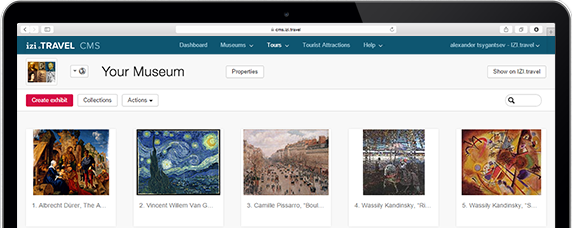Tur audio Short history of the Castle of Caprese
2 sights
- Sumar tur audio
-
Sumar tur audio
The first definite written evidence mentioning Caprese dates back to 1082. Tradition has it that its origins go back further to the period of the wars between the Lombards and Byzantines; the Lombards left a significant mark on the area as a document of 1070 mentions 'Longobardi de Caprise'. In 1324, after a long siege, the Castle was conquered by the Tarlati family from Arezzo. In 1384 the area of Caprese came under the control of Florence, and the Podesteria was established. The following centuries saw the decline of the Castle, until in 1860, the discovery of Michelangelo Buonarroti’s birth certificate initiated a series of restorations. Nowadays the Castle is made up of the “corte alta” (upper courtyard), with the ruins of a tower and a 14th century hall incorporated into a more recent building, and the “corte bassa” (lower courtyard) with two, well preserved stone buildings, the 14th century Palazzo Clusini and Palazzo del Podestà (Governor’s House), birth place of Michelangelo.
- 1 Castle gateway
- 2 Bell tower
- 3 Palazzo Clusini
- 4 Arnaldo Zocchi's Monument
- 5 Governor's House, The birthplace of Michelangelo
- 6 Plaster cast galleries
- 7 Giuliano Amidei, Madonna with Child and Saints. 15th century
- 8 Collection of 19th and 20th century sculpture
- 9 The Castle's Water tank
- 10 The Postern
- 11 The Church of St. John the Baptist
-
Sumar tur audio
The first definite written evidence mentioning Caprese dates back to 1082. Tradition has it that its origins go back further to the period of the wars between the Lombards and Byzantines; the Lombards left a significant mark on the area as a document of 1070 mentions 'Longobardi de Caprise'. In 1324, after a long siege, the Castle was conquered by the Tarlati family from Arezzo. In 1384 the area of Caprese came under the control of Florence, and the Podesteria was established. The following centuries saw the decline of the Castle, until in 1860, the discovery of Michelangelo Buonarroti’s birth certificate initiated a series of restorations. Nowadays the Castle is made up of the “corte alta” (upper courtyard), with the ruins of a tower and a 14th century hall incorporated into a more recent building, and the “corte bassa” (lower courtyard) with two, well preserved stone buildings, the 14th century Palazzo Clusini and Palazzo del Podestà (Governor’s House), birth place of Michelangelo.
Recenzii
3 recenzii
Scrieți o recenzie despre acest tur-
08-27-2023
È stata una piacevole scoperta. edifici ben ristrutturati, molto bello il museo con le riproduzione delle opere più famose.
-
08-27-2019
Molto bella ed interessante ed utile!;)
-
05-11-2018
Un modo fantastico per scoprire dove nacque Michelangelo Buonarroti!
Descărcați aplicația gratuită izi.TRAVEL
Creați-vă propriile tururi audio!
Folosirea sistemului şi a aplicaţiei ghid mobile este gratuită

